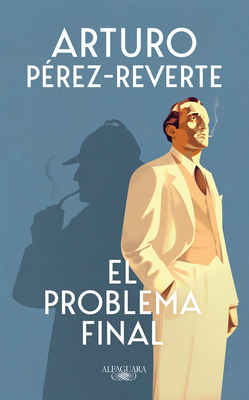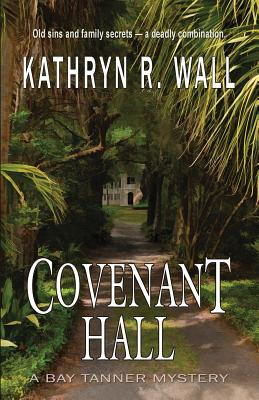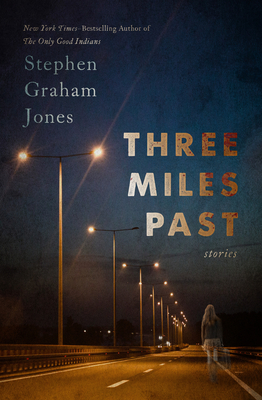
description
EVERTE
Un crimen imposible. Un detective insospechado.
No se trata de un desafÃo entre el asesino y el detective, sino de un duelo de inteligencia entre el autor y el lector.
--HarÃa falta un policÃa--sugirió alguien--. Un detective.
--Tenemos uno --dijo Foxá.
--Todos siguieron la dirección de su mirada.
--Eso es ridÃculo --protesté--. Se han vuelto locos?
--Usted fue Sherlock Holmes.
--Nadie fue Sherlock Holmes. Ese detective no existió jamás. Es una invención literaria.
--Que usted encarnó de manera admirable.
--Pero fue en el cine. Nada tuvo que ver con la vida real. Sólo soy un actor.
Me contemplaban esperanzados, y lo cierto es que yo mismo empezaba a entrar en situación, como si acabaran de encender los focos y oyese el suave rumor de una cámara rodando. Aun asà decidà mantenerme silencioso, cruzados los dedos bajo el mentón. No habÃa disfrutado tanto desde que rodé El perro de Baskerville. Junio de 1960. Un temporal mantiene aisladas en la idÃlica isla de Utakos, frente a Corfú, a nueve personas alojadas en el pequeño hotel local. Nada hace presagiar lo que está a punto de ocurrir: Edith Mander, una discreta turista inglesa, aparece muerta en el pabellón de la playa. Lo que parece un suicidio revela indicios imperceptibles para cualquiera salvo para Hopalong Basil, un actor en decadencia que en otro tiempo encarnó en la pantalla al más célebre detective de todos los tiempos. Nadie como él, acostumbrado a aplicar en el cine las habilidades deductivas de Sherlock Holmes, puede desentrañar lo que de verdad esconde ese enigma clásico de habitación cerrada. En una isla de la que nadie puede salir y a la que nadie puede llegar, inevitablemente todos se acabarán convirtiendo en sospechosos en una fascinante novela-problema donde la literatura policial se mezcla de modo asombroso con la vida. ENGLISH DESCRIPTION THE NEW NOVEL BY ARTURO PÉREZ-REVERTE
An impossible crime. An unlikely detective.
In addition to a race between killer and sleuth, The Final Problem is a duel of wits between authorand reader. "We need a policeman," someone suggested. "A detective."
"We have one," said Foxá.
Everyone followed the direction of his eyes.
"That's ridiculous," I protested. "Have you lost your minds?"
"You were Sherlock Holmes."
"Nobody was Sherlock Holmes. He never existed. He's a literary invention."
"One that you played masterfully."
"But that was in the movies. It had nothing to do with real life. I'm just an actor." They looked at me hopefully, and the truth is that I found myself getting into character, as if the lights had been flipped on and you could hear the soft whir of the camera rolling. But even so, I decided to keep quiet, my fingers crossed under my chin. I hadn't had so much fun since the set of The Hound of the Baskervilles. June 1960. A storm strands nine travelers at an inn on the idyllic island of Utakos, across from Corfu. No one has any premonition of what is about to happen: Edith Mander, a quiet English tourist, turns up dead in the beach pavilion. It looks like a suicide, but the scene contains a series of clues too subtle for anyone but the likes of Hopalong Basil, a washed-up actor who once played the most famous detective of all time on the silver screen. Having learned Sherlock Holmes' deductive reasoning as part of the role, he is the only one capable of uncovering what really happened in this classic locked-room mystery. On an island cut off from the rest of the world by the storm, everyone is automatically a suspect in this fascinating novel-problem in which detective-fiction collides in surprising ways with real life.
Un crimen imposible. Un detective insospechado.
No se trata de un desafÃo entre el asesino y el detective, sino de un duelo de inteligencia entre el autor y el lector.
--HarÃa falta un policÃa--sugirió alguien--. Un detective.
--Tenemos uno --dijo Foxá.
--Todos siguieron la dirección de su mirada.
--Eso es ridÃculo --protesté--. Se han vuelto locos?
--Usted fue Sherlock Holmes.
--Nadie fue Sherlock Holmes. Ese detective no existió jamás. Es una invención literaria.
--Que usted encarnó de manera admirable.
--Pero fue en el cine. Nada tuvo que ver con la vida real. Sólo soy un actor.
Me contemplaban esperanzados, y lo cierto es que yo mismo empezaba a entrar en situación, como si acabaran de encender los focos y oyese el suave rumor de una cámara rodando. Aun asà decidà mantenerme silencioso, cruzados los dedos bajo el mentón. No habÃa disfrutado tanto desde que rodé El perro de Baskerville. Junio de 1960. Un temporal mantiene aisladas en la idÃlica isla de Utakos, frente a Corfú, a nueve personas alojadas en el pequeño hotel local. Nada hace presagiar lo que está a punto de ocurrir: Edith Mander, una discreta turista inglesa, aparece muerta en el pabellón de la playa. Lo que parece un suicidio revela indicios imperceptibles para cualquiera salvo para Hopalong Basil, un actor en decadencia que en otro tiempo encarnó en la pantalla al más célebre detective de todos los tiempos. Nadie como él, acostumbrado a aplicar en el cine las habilidades deductivas de Sherlock Holmes, puede desentrañar lo que de verdad esconde ese enigma clásico de habitación cerrada. En una isla de la que nadie puede salir y a la que nadie puede llegar, inevitablemente todos se acabarán convirtiendo en sospechosos en una fascinante novela-problema donde la literatura policial se mezcla de modo asombroso con la vida. ENGLISH DESCRIPTION THE NEW NOVEL BY ARTURO PÉREZ-REVERTE
An impossible crime. An unlikely detective.
In addition to a race between killer and sleuth, The Final Problem is a duel of wits between authorand reader. "We need a policeman," someone suggested. "A detective."
"We have one," said Foxá.
Everyone followed the direction of his eyes.
"That's ridiculous," I protested. "Have you lost your minds?"
"You were Sherlock Holmes."
"Nobody was Sherlock Holmes. He never existed. He's a literary invention."
"One that you played masterfully."
"But that was in the movies. It had nothing to do with real life. I'm just an actor." They looked at me hopefully, and the truth is that I found myself getting into character, as if the lights had been flipped on and you could hear the soft whir of the camera rolling. But even so, I decided to keep quiet, my fingers crossed under my chin. I hadn't had so much fun since the set of The Hound of the Baskervilles. June 1960. A storm strands nine travelers at an inn on the idyllic island of Utakos, across from Corfu. No one has any premonition of what is about to happen: Edith Mander, a quiet English tourist, turns up dead in the beach pavilion. It looks like a suicide, but the scene contains a series of clues too subtle for anyone but the likes of Hopalong Basil, a washed-up actor who once played the most famous detective of all time on the silver screen. Having learned Sherlock Holmes' deductive reasoning as part of the role, he is the only one capable of uncovering what really happened in this classic locked-room mystery. On an island cut off from the rest of the world by the storm, everyone is automatically a suspect in this fascinating novel-problem in which detective-fiction collides in surprising ways with real life.
member goods
No member items were found under this heading.
Return Policy
All sales are final
Shipping
No special shipping considerations available.
Shipping fees determined at checkout.







